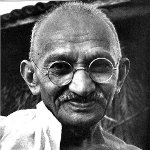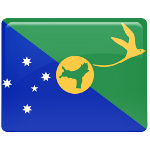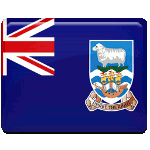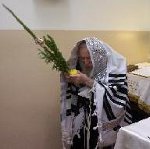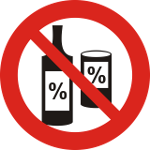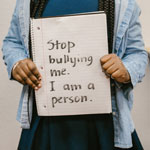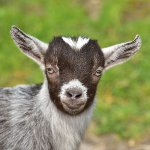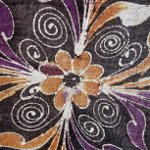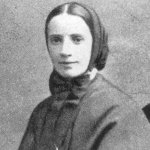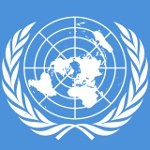Holidays Calendar for October 2, 2023
Independence Day in Guinea is celebrated on October 2. This public holiday commemorates the independence of the Republic of Guinea from France in 1958.
Mahatma Gandhi's Birthday (Gandhi Jayanti) is one of the three national holidays celebrated in India, the other two being Republic Day and Independence Day. It is observed on October 2. Mahatma Gandhi is often unofficially referred to as the Father of the Indian Nation.
Territory Day is one of the public holidays in Christmas Island. It is celebrated on the first Monday in October. The holiday commemorates the day Christmas Island became a territory within the Commonwealth of Australia.
Peat Cutting Day, also known as Peat Cutting Monday, is one of the public holidays in the Falkland Islands, a British overseas territory in the South Atlantic Ocean. It is celebrated on the first Monday on October.
On the first Monday in October, Saint Lucians celebrate Thanksgiving Day. Although it is a public holiday, its celebration is quite low-key. Most islanders simply enjoy the extended weekend, spending time with their family and friends.
On the 17th day of Rabi’ al-awwal (the 3rd month in the Islamic calendar), Iranian Muslims celebrate two important religious observances: the birth of Prophet Muhammad and of Imam Jafar al-Sadiq. This day is a public holiday in Iran.
Labour Day (spelled Labor Day in the United States) is an annual holiday that celebrates the achievements of the labor union movement, including the eight-hour working day. In most countries, it coincides with International Workers’ Day (May 1), but some have their own dates for Labour Day. In Australia, for example, it is celebrated on several dates depending on the state or territory.
Sukkot is a seven-day Jewish holiday. Its celebration starts on the 15th day of Tishrei. Along with Pesach and Shavuot, it belongs to Shalosh Regalim (the Three Pilgrimage Festivals), on which the Israelites were required to make a pilgrimage to the Holy Temple.
World No Alcohol Day is observed annually on October 2. It was created to promote temperance, educate the general public on the dangers of alcohol, and encourage people to give up drinking alcoholic beverages.
World Architecture Day is a global observance held annually on the first Monday of October. It was inaugurated by the International Union of Architects in 1985 and was originally celebrated on the first Monday of July.
World Day of Bullying Prevention, also known as Blue Shirt Day, is observed annually on the first Monday of October. It was created by STOMP Out Bullying, the United States’ leading national anti-bullying and cyberbullying organization.
Every year billions of animals are slaughtered for food and almost all of them are kept in farms. World Day for Farmed Animals, observed annually on October 2, was established to raise public awareness about these animals
National Batik Day (Hari Batik Nasional) is an Indonesian holiday celebrated on October 2. It marks the anniversary of the day Indonesian batik was designated as a Masterpiece of Oral and Intangible Heritage of Humanity in 2009.
Child Health Day is a national observance in the United States. It is annually observed on the first Monday of October. This observance focuses on raising people's awareness on how they can protect and develop the children's health.
Frances Xavier Cabrini Day, also known as simply Cabrini Day, is a state holiday in Colorado celebrated on the first Monday of October. It was instituted in 2020 as a replacement for Columbus Day.
The United Kingdom and some Commonwealth realms, including Australia, celebrate the official birthday of the British monarch as a public holiday. Most Australian territories and states observe the King’s Official Birthday on the second Monday in June, but there are a couple of exceptions. In Queensland, for example, the holiday is celebrated on the first Monday in October.
Tender and sweet fried scallops are a very delightful dish. No wonder there even is a holiday dedicated to them. National Fried Scallops Day is celebrated on October 2.
Mehregan is an ancient Zoroastrian and Persian festival of autumn. It is still celebrated in present-day Iran, falling on the 196th day of the year in the Persian calendar (October 2 in the Gregorian calendar).
International Day of Non-Violence is an annual observance that was established by the United Nations General Assembly in 2007. The day is observed on October 2, marking the birth anniversary of Mahatma Gandhi.
World Habitat Day is an annual United Nations observance held on the first Monday of October. It was officially established in 1985. The first celebration was held on October 6, 1986 with the theme “Shelter is My Right”.
Italian grandfathers and grandmothers annually celebrate their favorite holiday, Grandparents' Day on October 2. This holiday was introduced by the government of Italy in 2005.
Festivals for October 2, 2023
- Helsinki Baltic Herring Market in Helsinki, Finland
- Ballinasloe Horse Fair & Festival in Ballinasloe, Ireland
- Acco Festival of Alternative Israeli Theater in Acre, Israel
- Miami Carnival in Miami, USA
- Tbilisi International Festival of Theatre in Tbilisi, Georgia
- Carolina Renaissance Festival in Huntersville, USA
- Bath Children’s Literature Festival in Bath, United Kingdom
- New York Film Festival in New York, USA
- Marino Grape Festival in Marino, Italy
- Vancouver International Film Festival in Vancouver, Canada
- Zurich Film Festival in Zurich, Switzerland
- Reykjavik International Film Festival in Reykjavik, Iceland
- Haifa International Film Festival in Haifa, Israel
- Dublin Theatre Festival in Dublin, Ireland
- United Solo Theatre Festival in New York, USA
This Day in History
- 2017 Died: Tom Petty, American musician, singer, songwriter, multi instrumentalist and record producer. He was best known as the lead singer of Tom Petty and the Heartbreakers.
- 2008 Died: Rob Guest, British-born Australian actor and singer, best known for his work in Australian musical theater in various productions of The Phantom of the Opera.
- 2006 American milk truck driver Charles Carl Roberts started shooting at an Amish school in Nickel Mines, Pennsylvania. He killed five girls before committing suicide.
- 1996 Aeroperú Flight 603 en route from Miami, Florida to Santiago, Chile with stopovers in Ecuador and Peru crashed into the Pacific Ocean shortly after the takeoff from Lima, Peru. All 70 people on board died.
- 1990 Xiamen Airlines Flight 8301 was hijacked and landed at Guangzhou, where it crashed into two other airliners on the ground, killing 132 people.
- 1988 Died: Alec Issigonis, British-Greek automotive designer. He designed the Mini, launched by the British Motor Corporation in 1959, and voted the second most influential car of the 20th century in 1999.
- 1987 Died: Peter Medawar, British biologist, known for his work on graft rejection and the discovery of acquired immune tolerance. In 1960 he was awarded the Nobel Prize in Physiology or Medicine.
- 1985 Died: Rock Hudson, American actor, best known for his leading roles in Hollywood films of the 1950s and 1960s. His notable film credits include Magnificent Obsession, Giant, Pillow Tank, Send Me No Flowers etc.
- 1973 Died: Paavo Nurmi, Finnish runner, nicknamed the Flying Finn. He set 22 official world records and won a total of 9 gold and 3 silver medals in his 12 events in the Olympic Games.
- 1973 Born: Lene Nystrøm, Norwegian singer-songwriter, best known as the lead vocalist of the Danish-Norwegian dance pop group Aqua that achieved huge success during the late 1990s and early 2000s.
- 1970 Born: Kelly Ripa, American actress and talk show host. She is best known for her role as Hayley Vaughan on All My Children and for co-hosting the popular syndicated morning talk show Live! with Kelly and Mark.
- 1968 Died: Marcel Duchamp, French painter, sculptor, chess player, and writer whose work is associated with Cubism, Dada, and conceptual art. He had an immense impact on 20th- and 21st-century art.
- 1968 Mexican President Gustavo Díaz Ordaz ordered soldiers to suppress a demonstration of unarmed students, ten days before the start of the 1968 Summer Olympics.
- 1960 Born: Django Bates, British jazz musician, composer, multi-instrumentalist, band leader and educator. His bands have included Human Chain, Delightful Precipice, Quiet Nights, Powder Room Collapse Orchestra, and Belovèd.
- 1959 The first season of The Twilight Zone premiered on CBS. It has since spawned off a successful media franchise.
- 1951 Born: Sting (stage name of Gordon Sumner), English musician, singer, activist and actor. His accolades (as of 2024) include 17 Grammy Awards, a Golden Globe, an Emmy, and four nominations for the Academy Award for Best Original Song.
- 1949 Born: Annie Leibovitz, American photographer, known for her professional portraits of celebrities. She had been the last person to professionally photograph Lennon before he was killed four hours later.
- 1948 Born: Avery Brooks, American actor, director, singer, narrator and educator. He is best known for his television role as Captain Benjamin Sisko on Star Trek: Deep Space Nine.
- 1948 Born: Donna Karan, American fashion designer, the founder of the Donna Karan New York (DKNY) clothing label.
- 1937 President of the Dominican Republic Rafael Trujillo ordered the execution of the Haitian population living within the borderlands. Approximately 20,000 were killed over the next five days.
- 1933 Born: John Gurdon, English developmental biologist, best known for his pioneering research in nuclear transplantation. In 2012 he shared the Nobel Prize in Physiology or Medicine for the discovery that mature cells can be converted to stem cells.
- 1931 Died: Thomas Lipton, Scottish entrepreneur and yachtsman, known as the creator of the Lipton tea brand.
- 1927 Died: Svante Arrhenius, Swedish scientist, one of the founders of physical chemistry. He was involved in setting up the Nobel Institutes and the Nobel Prizes.
- 1920 Died: Max Bruch, German composer and conductor, the author of over 200 works, including three violin concertos. One of his concertos became a staple of the violin repertory.
- 1917 Born: Christian de Duve, Belgian cytologist and biochemist, remembered for his serendipitous discoveries of two cells organelles, peroxisome and lysosome.
- 1904 Born: Graham Greene, English writer, regarded as one of the greatest writers of the 20th century. He wrote 25 novels during his career, including The Man Within, The Power and the Glory, and Our Man in Havana.
- 1869 Born: Mahatma Gandhi, Indian activist and philosopher, the leader of Indian nonviolent independence movement. He inspired a number of peaceful movements for civil rights and freedoms across the world.
- 1852 Born: William Ramsay, British chemist, best known for the discovery of noble gases. His discovery brought him the Nobel Prize in Chemistry in 1904.
- 1814 The Spanish Royalist troops under Mariano Osorio defeated rebel the Chilean forces led by Bernardo O'Higgins in the Battle of Rancagua. This put an end to the Chilean Partia Vieja.
- 1804 Died: Nicolas-Joseph Cugnot, French inventor, known to have built the first working self-propelled mechanical vehicle, i.e. is the world's first automobile.
- 1789 George Washington sent the Constitutional amendments (now known as the United States Bill of Rights) to the various States for ratification.
- 1535 Jacques Cartier became the first European to visit the settlement of Hochelaga in Canada. Seventy years later Samuel Champlain established a fur trading post there, which would eventually become Montreal.
- 1263 The Battle of Largs was fought between the kingdoms of Norway and Scotland. It was one of the most important battles during the Scottish-Norwegian War, with Scotland defeating Norway.

